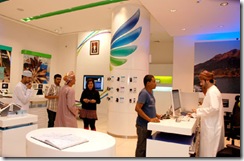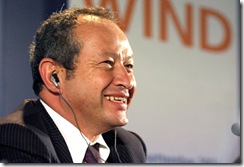A robust fourth quarter performance by Inmarsat helped the mobile satellite services company report steady growth in its 2009 consolidated financial results. Fourth quarter revenues were 13 per cent higher than the same quarter a year ago, reaching US$181.5 million from US$160.6 million. EBITDA grew 18 per cent to US$119.7 million.
 Maritime revenue grew 7.4 per cent on the back of strong take up and usage of Inmarsat’s Fleet and FleetBroadband services
Maritime revenue grew 7.4 per cent on the back of strong take up and usage of Inmarsat’s Fleet and FleetBroadband services
During the three months to end December 2009, the company also lowered its cost of debt by refinancing US$650 million, and completed the acquisition of Segovia’s government solutions business.
Full year results saw total revenues increase by 4.2 per cent to US$1.038 billion, while the Inmarsat Global MSS revenue contribution was up 10.4 per cent to US$682.8 million. EBITDA was 11.9 per cent higher than the previous year at US$594.2 million.
The global mobile satellite communications provider saw growth across a number of its sectors with maritime revenue growing 7.4 per cent on the back of strong take up and usage of its Fleet and FleetBroadband services. The land mobile sector increased 3.3 per cent mainly due to the growth in subscribers of the BGAN service and a migration from older devices. BGAN ARPU strengthened in the second half of the year and reached US$288 per month in the fourth quarter.
The aeronautical and leasing sectors also experienced strong revenue growth by 18 and 30 per cent respectively. In-flight cellular services for airline passengers made good progress during the year, but remain at an early stage in revenue contribution.
Inmarsat’s outlook for 2010 is positive based on an expected rise in demand from commercial and government customers, particularly for its data services. The company is entering the handheld satellite phone voice market and believes this represents an attractive new growth opportunity for the future. Allowing for approximately US$10 million in capital expenditure which the firm has deferred from 2009 to 2010, it expects the total cash capital expenditure to be around US$160-170 million.






